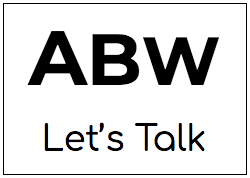"Congo's Children" E-book: Interview with Kem Knapp Sawyer
Reporting from the Democratic Republic of Congo on the lives of children, parents, caregivers, volunteers, and public health workers, Pulitzer Center contributing editor Kem Knapp Sawyer writes of the lingering horrors of war. Her focus is on the children of Congo, a country that has undergone severe trauma from decades of violence and conflict.
We spoke about the markers of hope and the initiatives she chose to profile in her new e-book, Congo's Children, co-authored with Pulitzer Center executive director Jon Sawyer.
Download Congo's Children for free from iTunes. Also available from Amazon and in a web version via Creatavist. View the Pulitzer Center's Untold Minute on YouTube.
Amelia Warshaw:
You highlight a number of organizations and people making significant differences in the Democratic Republic of Congo (DRC), such as Jean Paul Kinanga, director of the Maison Marguerite, and Stanislas Lukumba, a nurse who operates in the mobile van in Kinshasa. Do you think these people have a certain quality or specific vision that makes them successful?
Kem Knapp Sawyer:
You’ve singled out two very special people who are part of Congo’s Children. Stanislas Lukumba has worked for eight years as a nurse in a mobile van in Kinshasa, the nation’s capital. Every evening a driver takes him through neighborhoods where street kids hang out. Children with injuries and those who are sick come to him for treatment. On the night we visited he treated a young boy who had received a head injury after being hit with a bottle.
Jean Paul Kinanga is the director of the Maison Marguerite, a shelter for young women in Goma, many of them mothers and survivors of sexual violence. Jean Paul provides housing, education and vocational training—most importantly, he also fosters a loving, nurturing environment.
What is special about Stanislas and Jean Paul is that they are unusually caring people with big hearts. They are also quiet and unassuming—they know they can make a difference in the lives of young people and so they don’t waste any time. They get the job done and they are amazingly efficient, whether it’s attending to a wound or counseling a distraught mother. It’s frustrating for Stanislas and Jean Paul to reach only a limited number of youth, but they don’t give up. They do what they can.
AW: According to Annette Wanzio, who heads an ORPER open center, “The more we’ve done, the more we have to do. In 2006, there were 13,500 street kids in Kinshasa. Now, according to UNICEF estimates, there are more than 20,000.” Why do the numbers keep climbing?
KKS: It’s important to realize that these numbers are only estimates. It’s very hard to calculate exact numbers of street children. What the growth in numbers shows is the magnitude of the problem. It points to the need to address the underlying causes: Poverty and large families often go hand and hand. Parents cannot always afford to feed every child—therefore one or more may be accused of witchcraft and abandoned. Some are orphaned or abused. Others are former child soldiers whose families and communities have rejected them. Progress must be made in alleviating poverty and improving education. Only then will the numbers of street children decrease.
AW: Your guide in Lolanga, Dieudonné, father of 10, says that he feels it is his responsibility to educate his children. He says, “I can help my children. And that is as it should be." Is this a common view in Congo?
KKS: Dieudonné is the director of a human rights organization in Mbandaka and devoted to his family and wants to provide a college education for his children. We met many Congolese who like Dieudonné will make huge personal sacrifices to give their children a college education. I can’t say that Congo is different in this respect from other countries—parents all over the world will do whatever they can to provide opportunities to their children.
AW: Dr. Kasereka “Jo” Lusi, founder of Heal Africa, describes healing as “making a big salad with many ingredients.” From your experience reporting in Congo, what do you think some of the main ingredients are?
KKS: I love this quote. Dr. Jo Lusi believes that he and others must take a holistic approach. He also says that healing is not about surgery and pills. So much more needs to be done. When women come to HEAL Africa, the hospital in Goma, they receive medical care, but also counseling and vocational training. If they bring small children with them, those children can attend a school on the premises. If they have been victims of sexual violence, they are often allowed to stay for months at a time, long enough for psychological scars to begin to heal. Women are encouraged to become more self-confident and to ask men to take on more responsibility for the household.
You ask for the main ingredients—I’d include medical expertise of course, but also an emphasis on education and literacy, and a re-examination of the roles men and women play. Most of all, the patients need to know that they are valued and that people care.




